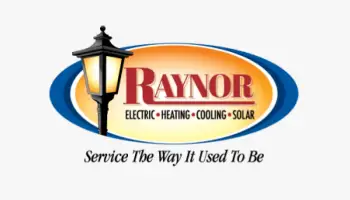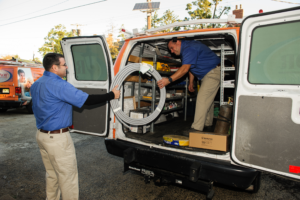For many homeowners, their monthly utility bill is something to be anxious about. During the particularly hot or cold months, home appliance usage can be hard to predict and so can the bill that comes with it. One option to stabilize your energy costs and expenses is to consider installing solar panels on your home. Over the past decade, solar energy has become a more popular choice for homeowners because the costs have decreased, and residents are looking for a more clean and more effective alternative fuel source to dirty fossil fuels. In fact, As of January 2023, 73.5 gigawatts of utility-scale solar capacity was operating in the United States, about 6% of the U.S. total. Additionally, the look of residential solar panels has also come a long way in recent years as panels have slimmed down and become less bulky, blending in nicely with the roofline.
With its popularity growing, now is the best time to learn about this exciting energy source. Below are some of the many solar energy benefits for homeowners:
Solar Energy Facts
Solar photovoltaic panels, better known as solar panels or PV panels, capture sunlight as a source of radiant energy and convert it into electric energy in the form of direct current electricity (dc). The energy is then used to power your home or can be stored in batteries or thermal storage for later use. Solar is classified as a renewable energy source because there’s no way we can use it all up. No matter how much sunlight we capture, the supply will be continuously replenished and never run out.
Solar Energy Benefits
Solar energy is sustainable, renewable, clean, and plentiful. As the cost of solar panel installation goes down each year, many homeowners are switching to this energy source to power their homes. Keep reading to learn the additional benefits of solar energy.
Cost Savings
Producing your own electricity means you don’t have to pay the utility company. The International Energy Agency declared solar power the most cost-effective type of electricity in history thanks to improvements in technology and manufacturing. On average, U.S. customers save about $1,500 annually by installing solar panels.
Federal Energy Tax Credits
Since 2006, the Solar Investment Tax Credit has provided a tax reduction for homeowners who choose to go solar. That means you can recover a certain percentage of your solar installation investment. The residential solar energy credit is worth 30% of the installed system costs through 2032, and there’s no maximum amount you can claim for your project. There are also “additions” to the tax credit that can further increase your savings. These depend on who is installing solar, whether panels and other components are American-made, and where the panels will be set up. For some projects, the 30% base rate plus the additions could amount to a 50% tax credit, cutting the cost of going solar in half.
Increased Home Value
Solar panels are viewed as an upgrade to a home, similar to a renovated basement or updated kitchen. Studies show that solar panels increase home value by an average of $15,000.
Environmental Benefits
Solar is a clean, renewable energy source that reduces the amount of carbon and other pollutants released into the atmosphere. Solar also reduces water consumption and provides cleaner air.
Is My Home Suitable for Solar?
Before going solar, there are a few things to consider. Solar panels are built to work in all climates, but some locations are better than others. Most panels are installed on rooftops to avoid direct danger and they’re more exposed to sunlight. Some rooftops might not be suitable for solar due to age or tree cover. The size, shape, and slope of your roof also matter. Typically, solar panels perform best on south-facing roofs with little shade and a pitch between 15 and 40 degrees.
How Long Do Solar Panels Last?
Correctly installed panels can last between 25 and 30 years or more. As with most technologies, solar panels will naturally produce less energy over time, with a .5% degradation rate per year. That means after 20 years, your solar panels will still be working at about 90% of their original output.
Residential Solar Panel Installation by Raynor Services
As a full-service company, we handle every step of the solar process from the moment you contact us. We’ll come to you for an estimate and assess your power requirements, as well as the available space and scope for the project. From permits to construction, you can trust that your investment with Raynor comes with outstanding customer service and full-spectrum assistance. Contact us at (609) 845-3460 to get started.



